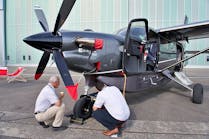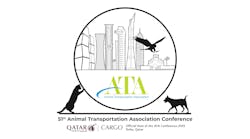ARSA Presses Commercial Parts Harmonization
On April 18, ARSA pressed the FAA to acknowledge a Feb. 3 request to resolve international regulatory issues associated with commercial parts and commercial off-the-shelf parts (COTS). These parts must be accompanied by an FAA Form 8130-3 or EASA Form 1 when used in work subject to the Maintenance Annex Guidance (MAG) despite there being no such requirement under 14 CFR.
The original letter, spearheaded by ARSA and signed by both industry interest groups and private businesses, is part of a now-19-month effort to mitigate problems related to aircraft parts documentation under the U.S.-EU Bilateral Aviation Safety Agreement (BASA). The commercial parts issue has become the most-recent example of American and European regulators failing to acknowledge the equivalency of each other’s system and as a result imposing paperwork requirements with no attendant safety benefit.
Failure to harmonize international aviation safety rules undermines the purpose of entering into bilateral aviation safety agreements. System differences must be negotiated to avoid untenable situations – like those being experienced with commercial parts – by certificate holders on both sides of the Atlantic.
On behalf of the industry allies that joined the Feb. 3 request, ARSA’s new letter underscored the pressing importance of the issue by requested a meeting with the FAA on the matter: “Given that EASA’s [ARSA-supported] Engineering and Maintenance Stakeholder Technical Body (STeB) meeting will take place on May 9, 2017 followed by the FAA-EASA conference in June, this is a perfect opportunity to address how the FAA views the commercial/COTS parts issue.”
Stay tuned as the association continues to press the issue.

